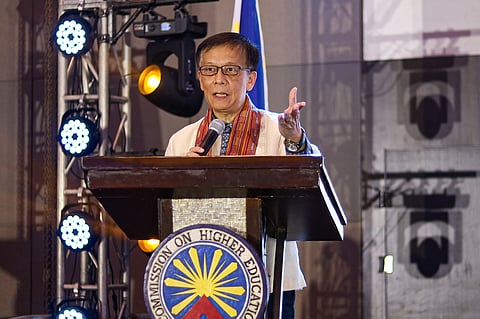
- NEWS
- the EDIT
- COMMENTARY
- BUSINESS
- LIFE
- SHOW
- ACTION
- GLOBAL GOALS
- SNAPS
- DYARYO TIRADA
- MORE

The minimum wage increase for domestic helpers signed August would be implemented on a voluntary, incentive-based approach among employers, the Department of Migrant Workers (DMW) said.
In a media briefing on Friday, Migrant Workers Secretary Hans Cacdac described it as the department’s “positive approach” rather than penalizing employers in countries opposed to the minimum wage hike of Filipino domestic workers to USD 500 (around P28,000) from USD 400 (around P22,000).
The DMW secretary declined to name countries who objected to the increase but confirmed they had already received concerns on the matter.
“That’s why this is what we are emphasizing here. We would rather take a positive track or approach and move ahead from here in terms of… as I said, we will draft guidelines, we will have a positive approach in having an incentives-based program for those who want to implement the USD 500 increase,” Cacdac said.
Employers who voluntarily implement the wage increase may be entitled to faster processing and other incentives. Further guidelines will be issued around the second or third week of October.
Cacdac said the wage hike would not necessarily result in disparity, noting that pay adjustments also hinge on the relationship between an employer and worker.
“That’s why what we will do is we will give recognition or incentive to that kind of situation [those who will comply with the increase], so that we can harness best practices out of it.”
The minimum wage increase forms part of Labor Advisory No. 25 signed last August containing enhanced reforms for Filipino domestic workers. The USD 400 minimum wage was implemented in 2006 under the Household Service Workers Policy Reform of the then-Philippine Overseas Employment Administration.
Initially, upon signing the advisory, DMW said employers would be mandated to follow the new wage rate with contracts screened for compliance.
